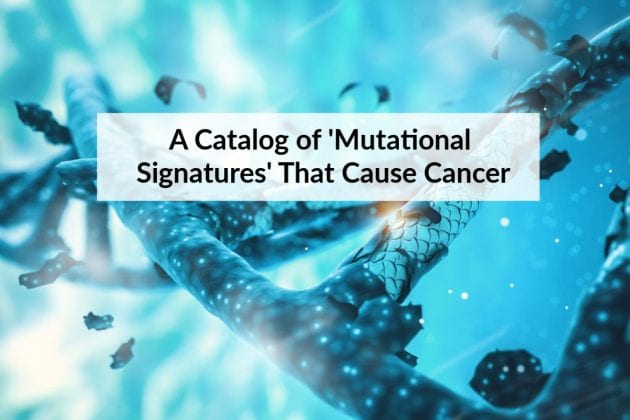List of Mutations That Causes Cancer – A Catalog of ‘Mutational Signatures’
Scientists around the world have painstakingly gathered a huge list of exact mutations that cancer causes to DNA in cells to understand more about how cancer develops and how it can be treated.
From more than 37 countries, around 1,300 scientists took part in the ‘Pan-Cancer Project’ and analyzed more than 2,600 genomes of 38 different cancer types.
The paper published in Nature could help scientists to study biological processes, environmental processes, and previously unknown chemicals responsible for causing cancer, and develop future prevention strategies as well as diagnosis and treatments.
The research work will improve the fundamental understanding of cancer as it represents an “unprecedented” international exploration of cancer genomes.
363,000 new cases and around 165,000 deaths are reported in the UK every year, with a new cancer being diagnosed every two minutes.
Some genetic changes occur to the DNA allowing cells to divide uncontrollably, leading to cancer. The work identifies these “mutational signatures” left by different causes of cancer like tobacco smoking and UV light
Professor Mike Stratton, director of the Wellcome Sanger Institute and senior author of the study said, the researchers worldwide can now investigate which processes or chemicals are linked to these mutational signatures with the help of the new catalog.
Dr. Ludmil Alexandrov, from the University of California San Diego, who is the first author of the study, said that they analyzed the whole genome sequences of every publicly available cancer genome. They were able to describe mutational signatures in much more detail than before using the data from thousands of cancers. The scientists are quite confident that they now know most of the existing mutational signatures that cause cancer.
The global Pan-Cancer Project is the most comprehensive as well as the largest study of whole cancer genomes yet.
The Pan-Cancer work is helping scientists to understand why two patients with same cancer respond to the same drug differently.
Dr. Peter Campbell, a member of the Pan-Cancer steering committee, said: “We show that the reasons for these different effects of treatment are written in the DNA. The genome of each patient’s cancer is unique, but there is a finite set of recurring patterns in the DNA, so with large enough studies, we can identify all these patterns to optimize cancer diagnosis and treatment.”
The Broad Institute of MIT and Harvard, University Hospital Southampton (UHS) in the UK, Duke-NUS Medical School Singapore, and the University of California San Diego School of Medicine were part of the project alongside the Wellcome Sanger Institute.
Professor Tim Underwood, professor of gastrointestinal surgery at the University of Southampton and a consultant gastrointestinal surgeon at UHS, said that he is proud that clinicians and patients from Southampton took part in such an internationally important study.
This new catalog of mutations that cause cancer has brought scientists a step closer to individualized cancer therapy.

